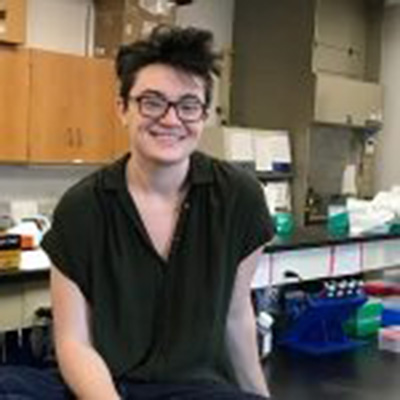The UConn Department of Anthropology is home to a diverse community of graduate students studying a variety of subfields. Continue reading to learn more about their favorite parts of their research, why they became interested in anthropology, and fun facts about them!
Q&A
What sparked your interest in Anthropology/Archaeology?
In the summer of 2010, I had an internship at an Austin, TX-based community archive called the Texas After Violence Project. They collect oral histories of how individuals and their families have been impacted by state-sanctioned violence in Texas. My time spent with this organization completely pivoted my academic trajectory. At the time, I was a Theatre & Dance major at the University of Texas at Austin but was seriously considering switching majors to something like history. My experiences at TAVP inspired me to look into anthropology, and that following fall, I took a linguistic anthropology class to confirm my interest. I changed my major to anthropology that semester.
What are your research interests?
Critical biocultural anthropology, anthropological genetics, paleogenomics, archaeological theory and method, science and technology studies, critical feminist, queer, Black, and Indigenous theory.
Where will you/are you conducting your fieldwork?
My dissertation focuses on two 19th-century archaeological sites in Houston and Austin, Texas. The majority of my research is lab-based, but I visit Texas for archival and community-based work.
What do you find most interesting about your field work location?
I think it is of the utmost importance for us to tell Texas history as critically and robustly as possible. Schoolchildren in Texas take Texas history multiple times – I took it in the fourth and seventh grades – but Texas history books tend to reinforce a very particular narrative about how Texas came to be. Through my dissertation work, I aim to tell the lesser-known histories of Black, brown, poor, and other marginalized peoples and their experiences with state-sanctioned violence in 19th century Texas.
What is your most memorable experience thus far in the field?
As an ancient DNA researcher, most of my research is conducted in the lab. I suppose, in an autoethnographic sense, my experiences in “the field” could be considered my first 27 years of life as someone born and raised in Texas. But I’m not sure I have enough space here to tell those kinds of memories!
What do you do in your “downtime?” Tell us something interesting about yourself!
I spend a lot of time hiking with my dog all around New England. A goal of mine is to do 100+ Connecticut hikes before I graduate. Along the way, I’ve picked up an interest in antiquing and learning lesser-known histories of New England towns and villages. I’ve also recently picked up linoleum carving, or linocutting, as a medium of printmaking. I consume hours of podcast content on the daily and have a deep and complicated love for the Bachelor and all of its subsequent iterations.
